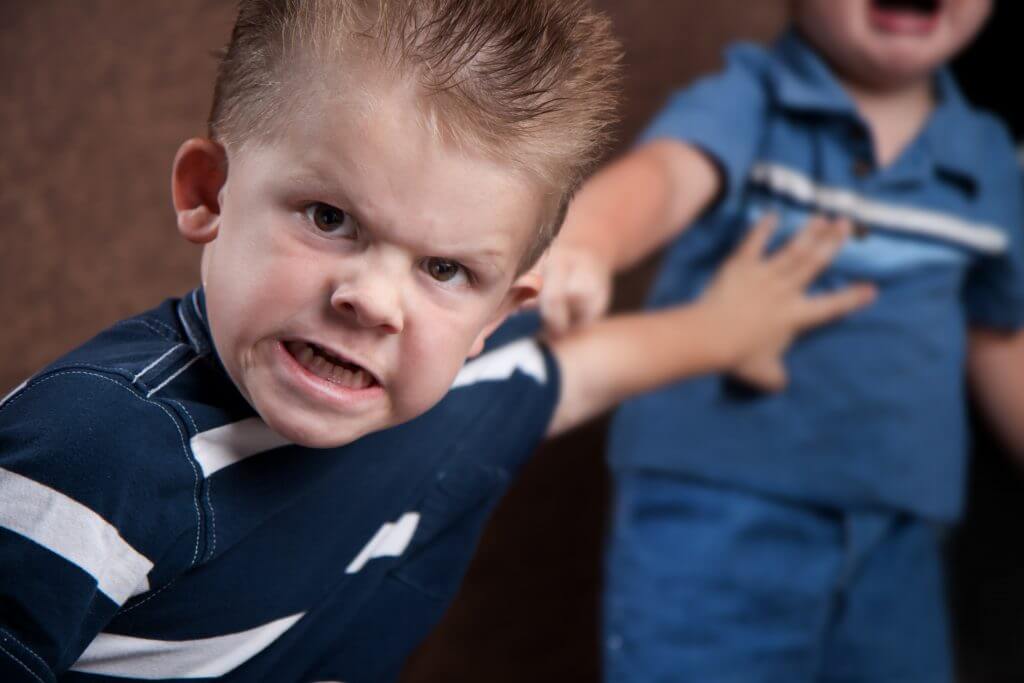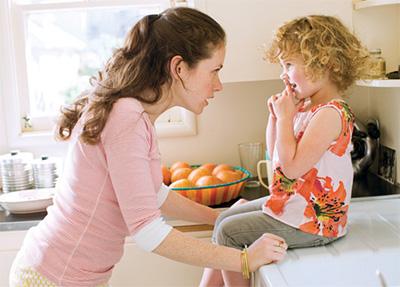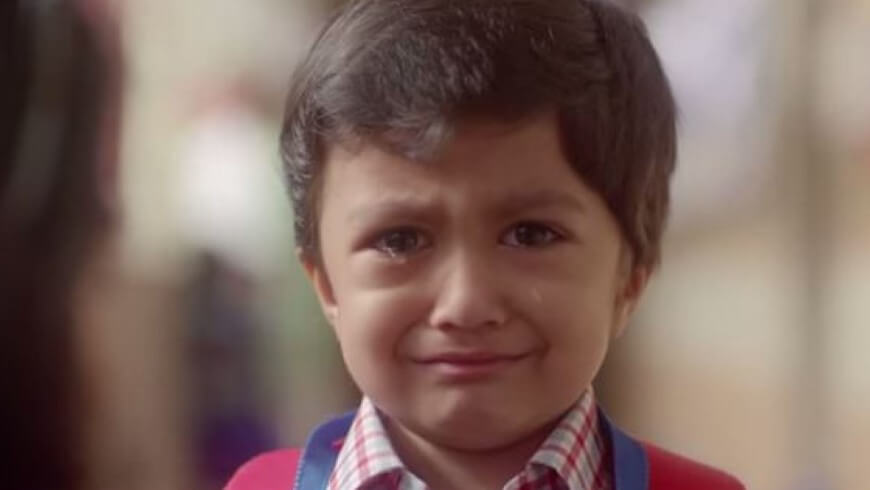Aggression in Children? How to Curb Their Anger?

Biting! Hitting! Hair pulling! Has your kid ever lashed out on you or hurt someone? Aggression in children is common. Kids, when they lose their emotional connection often feel frightened, tensed or even isolated for that matter. During such emotional outburst, their aggressive behavior can hurt or others.

Ways To Deal With Aggressive Children:
1. Assign rules and stick to it:
The child needs to be taught the difference between good and bad behavior. You need to set some firm but not-so-strict rules which they can easily understand and obey to ensure your child gets disciplined.
Punishing is not going to help. Rather, try to communicate as much as possible in making them understand their inappropriate behavior and how they can improve.
2. Teach Your Child to Deal With Her Anger:
Encourage her to use words to express her feelings rather than fighting with her body, and praise her for exhibiting nonviolent behavior. Let her witness other conflicts that arise in your home being resolved in a peaceful manner.
3. Instill Self-control In Your Child:
Kids aren’t born with an ability to control their moods. They are supposed to be taught and not punished. A child needs a parent’s love, comfort, care, and guidance to develop that ability to keep his/her feelings in control. This will help them think before they put out an impulsive behavior.
4. Avoid Encouraging ‘Toughness’:
In a few families; aggressiveness is encouraged. Parents are often seen false praising their kids. This will let your child think that he/she has the approval towards such behavior. Do not encourage such words in front of them, rather teach them to behave appropriately.
5. Control Your Own Temper:
You need to understand that the way you handle your frustration and anger has a direct impact on your child. Therefore, it is important that you are perceived as a positive role model in their lives. Kids can easily grasp things especially when they are growing up. Give them a peaceful environment at home; incorporate calm and friendlier tones while talking to them and so on to sober their attitude.
6. Don’t Use Spank As a Form Of Discipline:
Some parents punish by spanking their child. The child’s development might take a U-turn (negatively) from there. Physical punishment can have a bad impact on your kid and it will further make them more aggressive towards others.

7. Find A Creative Outlet:
Kids are different and so are their ways to cool them down. Some kids let off the steam by screaming, or stomping their feet or throwing away their stuff and so on. This varies from children to children. Encouraging your kids to do what they enjoy doing the most – it could be painting, playing with the clay, building LEGO, playing with the pet, reading etc.
8. Recognize The Reasons For Aggression:
Various parenting classes and counseling sessions have concluded that the primary emotion responsible behind aggression in children is the feeling of helplessness. If a child is being aggressive most of the times it is because the parents are exercising too much control over him/her. The parent-child relationship will only flourish when you give your child some space and freedom to choose what they love to do. In case if those are wrongdoings, you need to tackle them gently explain them its consequences.
9. Accept The Feelings, Not The Behaviors:
When our kids get angry we always tend to look at how they are behaving rather seeing the reason behind such behavior. It is one of the important positive parenting tips that suggest you look beyond your kid’s behavior.
The best way to defuse the negative behavior or aggression in children is by implementing simple communication skills to improve your child’s behavior. Raising children is a huge responsibility and we need to make sure that they are raised wisely.

10. Respond Firmly, But Without Anger:
Majority of experts suggest loving your child unconditionally in their parenting tips. Only love has that ability to calm down the aggression in children and that too happens gradually with time.
If you want your kids to believe that you love them unconditionally, then you need to make them feel comfortable every time. Even when they have misbehaved or threw a fit, cried and howled, the parent must approach such behavior with utmost care and love.
Punishing or getting angry is not the solution, it will simply make things worse. Rather, respond firmly and in a cool manner. You will notice an incredible change in the response you usually get from your child.
11. Teach Your Child To Respond Appropriately:
Let’s take an example, your child gets involved in a fight and is completely in anger. At times it may happen that when you intervene to calm down your child’s aggressive behavior, chances are your kid is ready to howl at you even more aggressively.
In this situation, you need to tend to the other kid who is hurt and comfort them ensuring that they are okay. It is okay to let your kids watch you offering comfort and empathy to the other kid. If your child is still in aggressive mode and trying to hurt you; they need more time to calm down. It is crucial that you immediately detach them from that situation.
12. Limit The Screen Time:
A recent study suggests that kids who spend most of their time watching television tend to be aggressive when compared to those who spend their time playing outdoors. Make a schedule that limits their TV time. Encourage them more to play outdoors. Kids under 5 are recommended to play a physical sport for at least 3 hours daily.
13. Praise Calm Behavior:
Praise their calm behavior when they show the same. It roots positive discipline in your kids when you acknowledge their good behavior, for example when they wait for their turn while standing in a queue, or talk gently with others, etc. It is crucial to let them know why you are happy and praising them.

Why Does My Child Get Aggressive?
Parents have the power to defuse the aggression in children by enforcing discipline, and manners. The key is to help them express what they feel.
1. Lack of Effective Listening:
Children are natural at showcasing their emotions. So, when they feel safe, they will naturally feel secure and loved and will not hurt or lash out on anyone. They feel the bond with you and will always come to you for help.
If you fail to listen to why your child is upset, it not only develops low self-esteem, but he/she will also feel vulnerable in their growing years.

2. Express Feelings via Aggression:
You often must have heard your kid saying, “no one understands me”, or, “no one loves me”. Their trusting nature has somewhere got crushed and we as parents are responsible for this.
Above all, I want to say is: don’t get discouraged. Children often behave aggressively because they have difficulty dealing with their frustration or anxiety and can’t convey their feelings as adults do.
Parents have the power to help an aggressive child improve by enforcing unconditional love, care, and comfort towards them. And, once your child feels your assured love and calming approach, you will see how they open up to you and respond positively.
Want to get pro tips on child anger management from our parenting coach Mr. Naren Goidani! Watch this video now!




